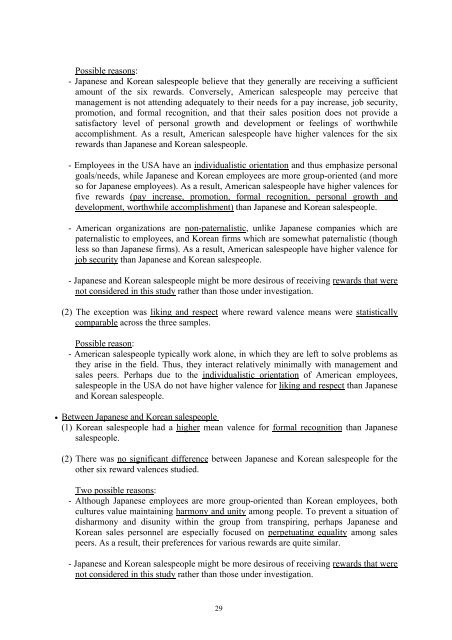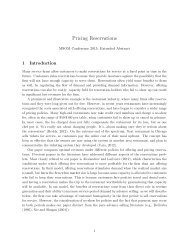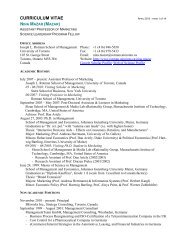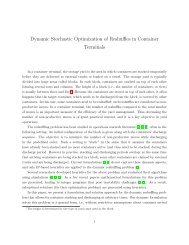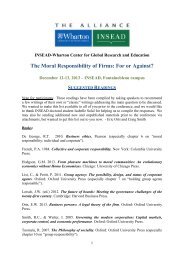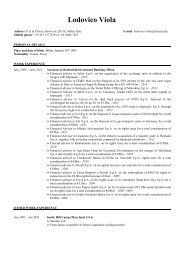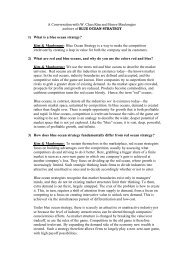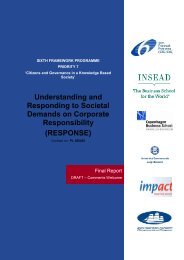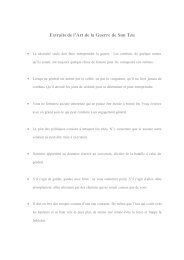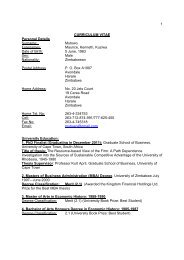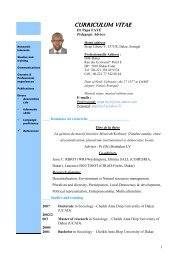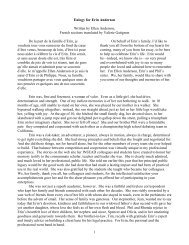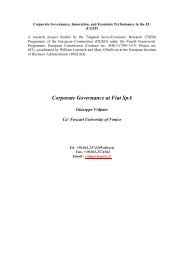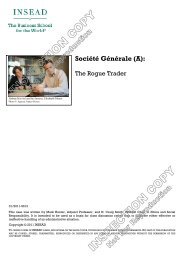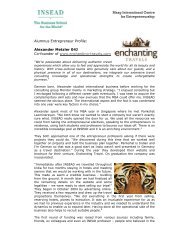Leading the Effective Sales Force: The Asian Sales Force ... - Insead
Leading the Effective Sales Force: The Asian Sales Force ... - Insead
Leading the Effective Sales Force: The Asian Sales Force ... - Insead
Create successful ePaper yourself
Turn your PDF publications into a flip-book with our unique Google optimized e-Paper software.
Possible reasons:<br />
- Japanese and Korean salespeople believe that <strong>the</strong>y generally are receiving a sufficient<br />
amount of <strong>the</strong> six rewards. Conversely, American salespeople may perceive that<br />
management is not attending adequately to <strong>the</strong>ir needs for a pay increase, job security,<br />
promotion, and formal recognition, and that <strong>the</strong>ir sales position does not provide a<br />
satisfactory level of personal growth and development or feelings of worthwhile<br />
accomplishment. As a result, American salespeople have higher valences for <strong>the</strong> six<br />
rewards than Japanese and Korean salespeople.<br />
- Employees in <strong>the</strong> USA have an individualistic orientation and thus emphasize personal<br />
goals/needs, while Japanese and Korean employees are more group-oriented (and more<br />
so for Japanese employees). As a result, American salespeople have higher valences for<br />
five rewards (pay increase, promotion, formal recognition, personal growth and<br />
development, worthwhile accomplishment) than Japanese and Korean salespeople.<br />
- American organizations are non-paternalistic, unlike Japanese companies which are<br />
paternalistic to employees, and Korean firms which are somewhat paternalistic (though<br />
less so than Japanese firms). As a result, American salespeople have higher valence for<br />
job security than Japanese and Korean salespeople.<br />
- Japanese and Korean salespeople might be more desirous of receiving rewards that were<br />
not considered in this study ra<strong>the</strong>r than those under investigation.<br />
(2) <strong>The</strong> exception was liking and respect where reward valence means were statistically<br />
comparable across <strong>the</strong> three samples.<br />
Possible reason:<br />
- American salespeople typically work alone, in which <strong>the</strong>y are left to solve problems as<br />
<strong>the</strong>y arise in <strong>the</strong> field. Thus, <strong>the</strong>y interact relatively minimally with management and<br />
sales peers. Perhaps due to <strong>the</strong> individualistic orientation of American employees,<br />
salespeople in <strong>the</strong> USA do not have higher valence for liking and respect than Japanese<br />
and Korean salespeople.<br />
• Between Japanese and Korean salespeople<br />
(1) Korean salespeople had a higher mean valence for formal recognition than Japanese<br />
salespeople.<br />
(2) <strong>The</strong>re was no significant difference between Japanese and Korean salespeople for <strong>the</strong><br />
o<strong>the</strong>r six reward valences studied.<br />
Two possible reasons:<br />
- Although Japanese employees are more group-oriented than Korean employees, both<br />
cultures value maintaining harmony and unity among people. To prevent a situation of<br />
disharmony and disunity within <strong>the</strong> group from transpiring, perhaps Japanese and<br />
Korean sales personnel are especially focused on perpetuating equality among sales<br />
peers. As a result, <strong>the</strong>ir preferences for various rewards are quite similar.<br />
- Japanese and Korean salespeople might be more desirous of receiving rewards that were<br />
not considered in this study ra<strong>the</strong>r than those under investigation.<br />
29


